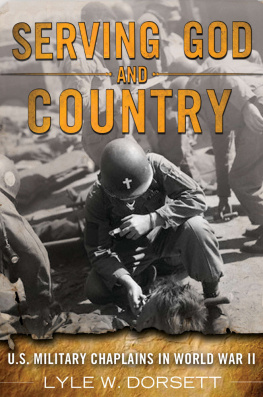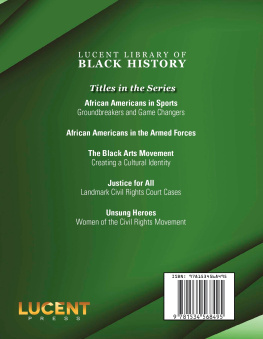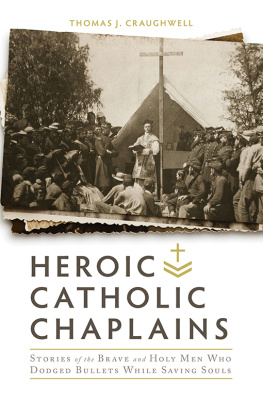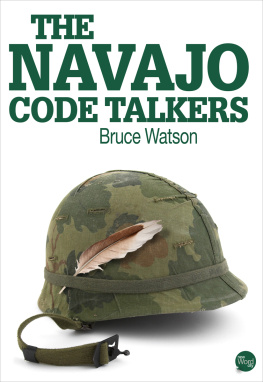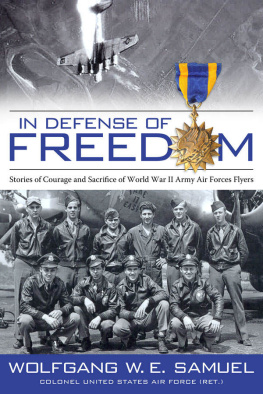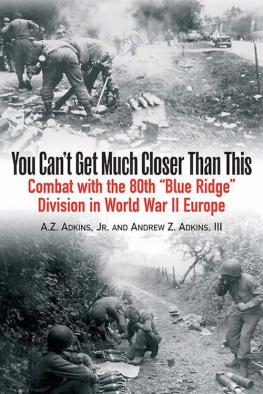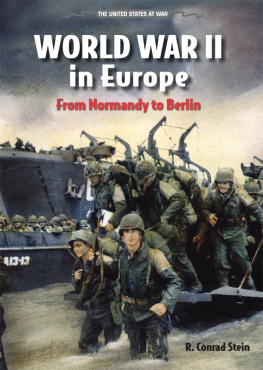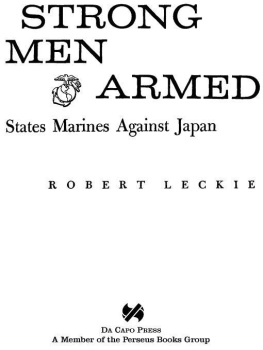S ERVING G OD
AND C OUNTRY
Most Berkley Caliber Books are available at special quantity discounts for bulk purchases for sales promotions, premiums, fund-raising, or educational use. Special books, or book excerpts, can also be created to fit specific needs.
For details, write: Special Markets, The Berkley Publishing Group, 375 Hudson Street, New York, New York 10014.
S ERVING G OD
AND C OUNTRY

U.S. Military Chaplains in World War II

LYLE W. DORSETT

BERKLEY CALIBER, NEW YORK
BERKLEY BOOKS
Published by the Penguin Group
Penguin Group (USA) Inc.
375 Hudson Street, New York, New York 10014, USA
Penguin Group (Canada), 90 Eglinton Avenue East, Suite 700, Toronto, Ontario M4P 2Y3, Canada (a division of Pearson Penguin Canada Inc.) Penguin Books Ltd., 80 Strand, London WC2R 0RL, England Penguin Group Ireland, 25 St. Stephens Green, Dublin 2, Ireland (a division of Penguin Books Ltd.) Penguin Group (Australia), 250 Camberwell Road, Camberwell, Victoria 3124, Australia (a division of Pearson Australia Group Pty. Ltd.) Penguin Books India Pvt. Ltd., 11 Community Centre, Panchsheel Park, New Delhi110 017, India Penguin Group (NZ), 67 Apollo Drive, Rosedale, Auckland 0632, New Zealand (a division of Pearson New Zealand Ltd.) Penguin Books (South Africa) (Pty.) Ltd., 24 Sturdee Avenue, Rosebank, Johannesburg 2196, South Africa
Penguin Books Ltd., Registered Offices: 80 Strand, London WC2R 0RL, England
This book is an original publication of The Berkley Publishing Group.
The publisher does not have any control over and does not assume any responsibility for author or third-party websites or their content.
Copyright 2012 by Lyle W. Dorsett
Jacket design by Steve Meditz
Book design by Tiffany Estreicher
All rights reserved.
No part of this book may be reproduced, scanned, or distributed in any printed or electronic form without permission. Please do not participate in or encourage piracy of copyrighted materials in violation of the authors rights. Purchase only authorized editions.
BERKLEY CALIBER and its logo are trademarks of Penguin Group (USA) Inc.
First Edition: August 2012
Library of Congress Cataloging-in-Publication Data
Dorsett, Lyle W.
Serving God and country : U.S. military chaplains in World War II / Lyle W. Dorsett.
p. cm.
ISBN: 978-1-101-61069-5
1. World War, 19391945ChaplainsUnited States. 2. Military chaplainsUnited States. I. Title.
D810.C36U635 2012
940.54780973dc23
2011038762
PRINTED IN THE UNITED STATES OF AMERICA
10 9 8 7 6 5 4 3 2 1
ALWAYS LEARNING
PEARSON
For Bill, Dan, Elizabeth, Henry, and your children.
May the dedication and selflessness of those who have gone before inspire you to spend your lives Serving God and Country.
Put down somewhere, too, everything you see and hear which will help later on to recapture the spirit of this tragic, marvelous, and eye-opening time: so that, having recaptured it, we can use it for better ends.
Jan Struther, in Mrs. Miniver (1940)

PART ONE

CHAPTER ONE
T HE W AR AND S PIRITUAL P OWER
Battles are won by military power, but wars are won by spiritual power.
CHAPLAIN (MAJOR GENERAL) WILLIAM ARNOLD
T HROUGH fog, smoke, and screams Sergeant Bob Slaughter charged into a storm of bullets and shrapnel and, as he phrased it, somehow survived the bloody first wave of the Normandy invasion on June 6, l944. A month later, after he and fellow soldiers of the Twenty-Ninth Infantry Division had battled their way about twenty miles southward, they were pinned down near the heavily fortified French city Saint-L. Well-dug-in Germans rained a barrage of mortar and artillery shells down on what remained of Slaughters battle-decimated company. In the confusion of blinding smoke, flying debris, cursing, and yelling, frantic soldiers dug foxholes and listened for orders from battle-weary platoon leaders. Bob Slaughter and another member of his squad hastily dug a hole for cover until American artillery support could weaken the German fortifications. He and his comrade had no sooner scooped out their shallow shelter than a third man plunged in with them. Slaughter looked up and saw a white cross painted on the uninvited guests helmet. The intruder immediately asked if they by any chance knew where he might find Sergeant Bob Slaughter. Astonished by the coincidence, Slaughter confessed he was the man. Without wasting time on introductions, the chaplain apologized for not finding him sooner but explained that locating anyone in the confusion of invasion preparation had been almost impossible. The chaplain quickly informed Slaughter that his father had died a few weeks earlier at home in Roanoke, Virginia. Slaughters mother had sought the assistance of her Presbyterian pastor to get the news overseas to her son. The pastor had managed to get the message moving through channels until it reached the chaplain assigned to Slaughters battalion and, finally, its destination near Saint-L.
In 2009 Bob Slaughter was still in awe of that battlefield chaplain. Although he neither learned the clergymans name nor saw him again, sixty-five years later the combat veteran remained deeply grateful to the clergyman who had risked his life to carry the message in the midst of harrowing enemy fire. Furthermore, the courageous news carrier took time to express condolences and to apologize because, under the circumstances, he could not ask the sergeants commanding officer to grant him an emergency leave to comfort his grieving mother.
S IX MONTHS LATER a young combat infantry officer along the Belgian-German border, engulfed in another deafening episode of war, crawled out of the Ardennes forest holding a compress on his wounded leg. Falling off the front line to get stitched up, Lieutenant Henry Cobb looked up to see a chaplain rushing into the woods, where the Germans were raining down a storm of artillery shells on the battered Americans who had been caught by surprise in the Battle of the Bulge. Cobb recalled that he recognized the chaplain as the priest who had given him and some other soldiers Holy Communion several hours earlier. The Catholic priest was charging full speed toward the woods, into an inferno of fire, smoke, deafening explosions, and splintering trees. The wounded officer yelled: Where in the devil do you think you are going, Father? All hell is breaking loose up there. The chaplain ran past Cobb, muttering That is why I need to be there.
Henry Cobb never learned the chaplains name and he never saw him again. But more than sixty years later, the aging World War II veteran still marveled at the priests disregard for his own safety in a quest to comfort and encourage beleaguered and dying men.
A YEAR EARLIER , on the Pacific island of Saipan, Jewish chaplain Milton Rosenbaum hunkered down in a slit trench with twelve marines. Japanese mortar shells exploded all around and enemy fighter bombers strafed the entrenched Americans. One of the men bellowed: Chaplain, what about a prayer? Rosenbaum cried out over the battle noise, The Lord is my Shepherd, I shall not want. A dozen voices joined the chaplain in reciting the ancient Psalm. The young man who remembered the incident said the chaplain was the only Jewish man in the trench. In combat, discrimination because of creed simply did not exist.

